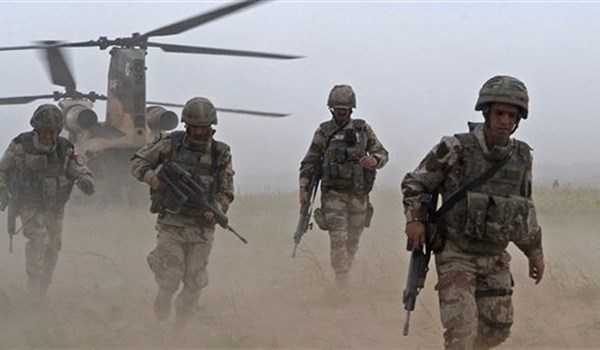
RNA - President Trump has also made clear he is planning to press NATO allies to provide additional troops and funding for the conflict. This is not necessary, as NATO Secretary General Jens Stoltenberg has already issued a statement endorsing the escalation, and insisting the alliance fully commuted to the conflict.
Starting with the 2001 invasion, the US war on Afghanistan is now 16 years in, the longest war in American history. Even President Trump thinks this is excessively long, admitting that “my original instinct was to pull out.”
But the US isn’t pulling out. Instead, Trump has recommitted the US to a new round of escalation with no concrete end conditions, and formally disavowed a “time-based” approach. He also doesn’t think the US should publicly announce the dates for ending their “military options.” Meaning, any pretense of the Afghan War ending is out the window, and the seemingly endless war has no end in sight.
Obviously, the Trump White House is following down the path that President Obama took on Afghanistan, with large escalations early in his presidency accomplishing nothing, and a drawdown to give the impression the war was almost over. Yet as with Obama, President Trump seems to be uncomfortable ending America’s longest war on his watch. This commits the US to years of more conflict, and the casualties that will undoubtedly follow.
Worse still, Trump says the US strategy will be secret, saying the US is removing any timetables for ending the war. He says he will not talk publicly about troop numbers or plans for ongoing military activity there. While arguing that “America’s enemies must never know our plans,” Trump’s secrecy also means the world public will have no idea how the illegal war is being prosecuted.
This mirrors the decision to effectively make the war permanent and with no accountability. And the broad message is this: The US wasn’t aggressive enough so far and didn’t kill enough civilians in previous escalations. That Trump gave some lip-service to economic aid for Afghanistan is yet another evidence that the US has abandoned nation-building, declaring “we are not nation-building again, we’re killing terrorists.” So the escalation is never about nation-building; it is about targeting “20 distinct terrorist organizations between Afghanistan and Pakistan,” and vowing to lift restrictions on “our war fighters.”
Ultimately, a ramp up of US forces with no defined timeline for departure, a re-commitment to the status quo, and keeping troop levels secret leaves the door open to this inevitable conclusion: The tailored, mangled and obscured policy will take the War Party nowhere – just like all previous escalations. Either way, they will also lay the groundwork for more tensions with Afghanistan’s neighbors, particularly Pakistan.
The same conclusion could be drawn for Trump’s abrupt foreign policy reversals elsewhere in the region: In the seven months since taking office, Trump has expanded military operations in Yemen, Syria, Iraq, Somalia, and Libya. And that’s in addition to an escalated nuclear standoff with North Korea. These are, he claims, an agenda based on counter-terrorism principles and devoting American blood and treasure purely to the country’s first-order military interests. But that’s all rhetoric plastered atop a military-oriented interventionist policy, done ostensiblyto ensure that the permanent war continues apace.
After 16 years of an unpopular war, however, polls show the world community doesn’t believe the US is making significant progress; they have soured on ending the war and withdrawing the troops. People of good conscience further believe that the war was a mistake in the first place. They don’t think the US is winning the war. Also according to a POLITICO/Morning Consult poll conducted earlier this month, only 23 percent of American voters believe the US is winning the war in Afghanistan. Thirty-eight percent say the US is losing the war.
At any rate, Trump's intention to increase troop levels is in no way popular among the world community who call for an end to the longest war in American history, much less among the majority of American voters who call the war a “mistake” - just as Trump did during the early days of his presidential campaign. He famously said in 2013: “We have wasted an enormous amount of blood and treasure in Afghanistan. Let's get out!”
847/940